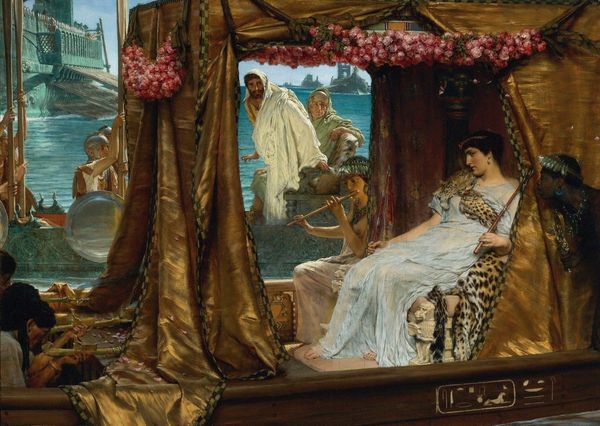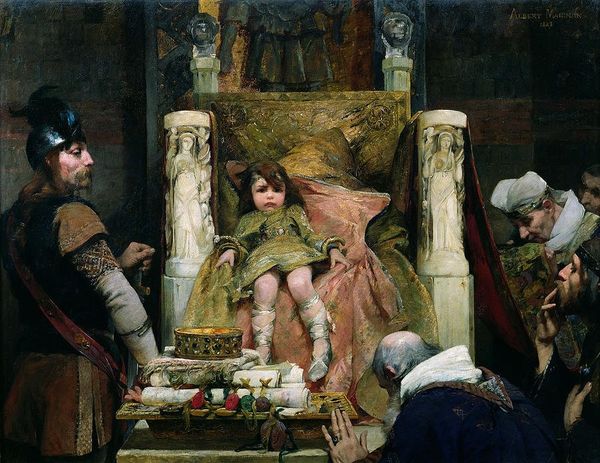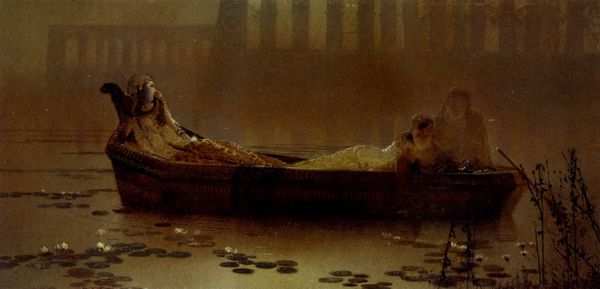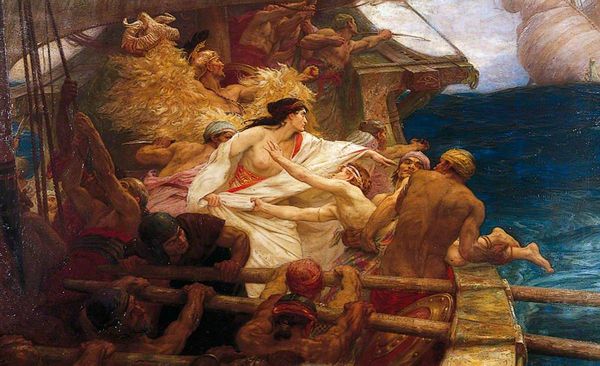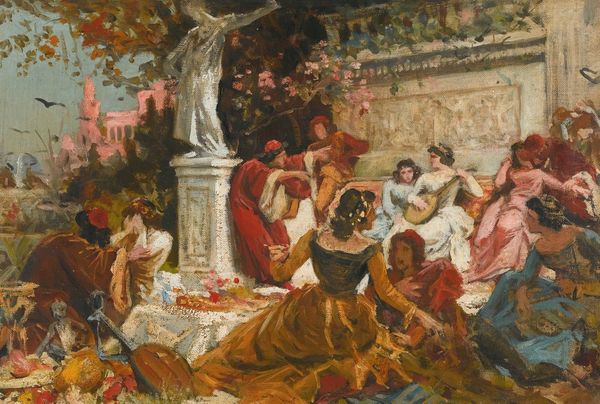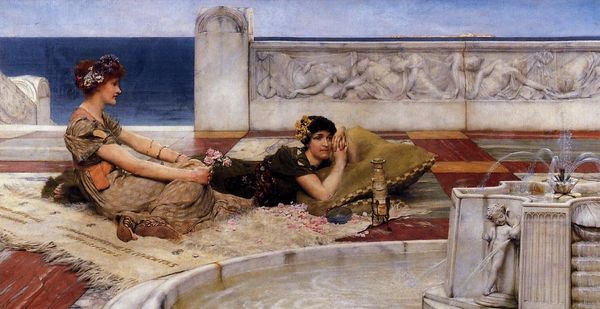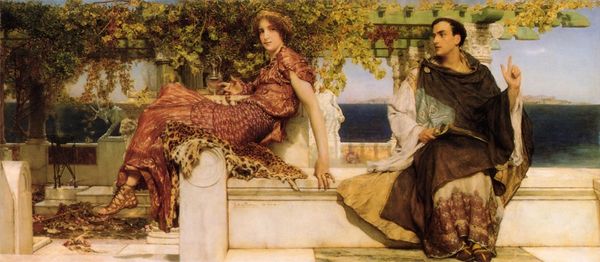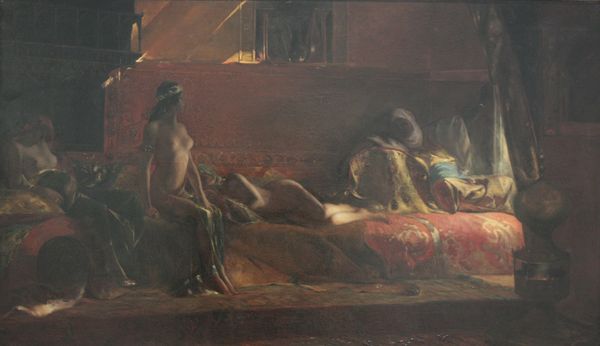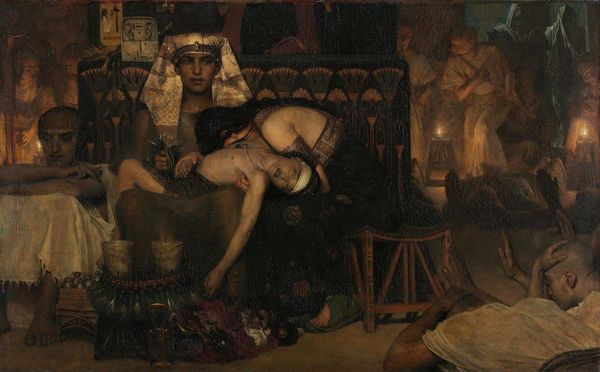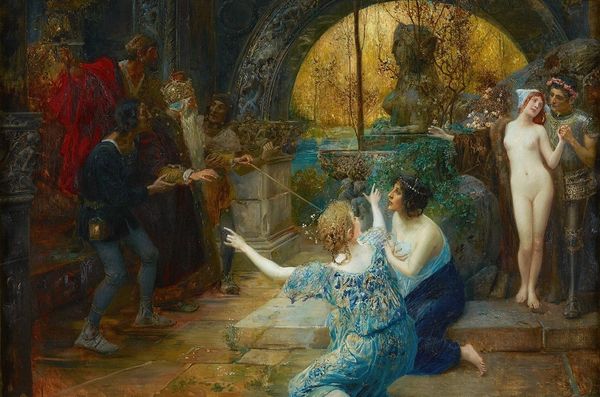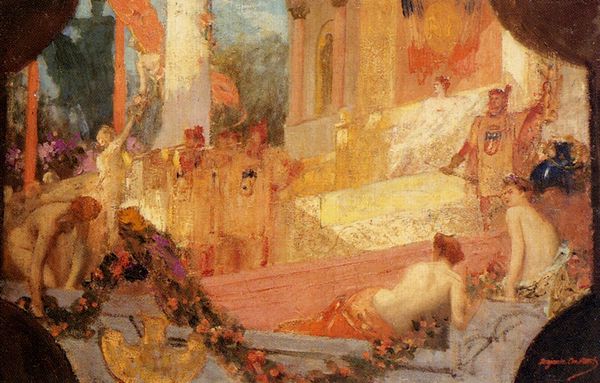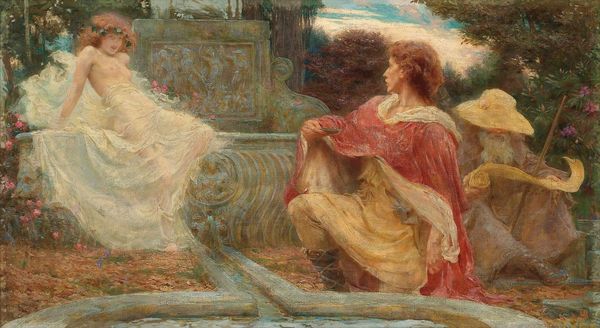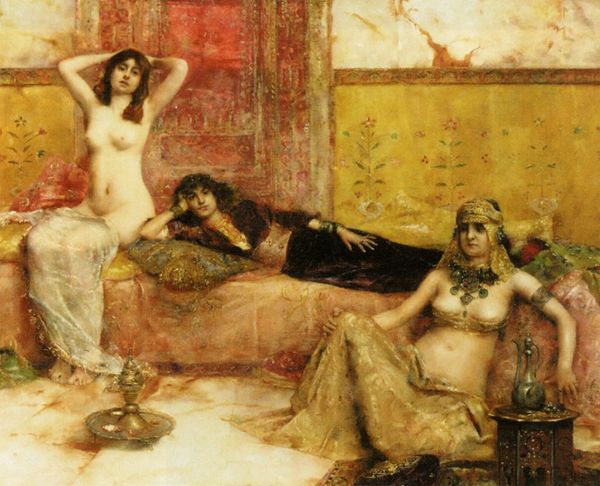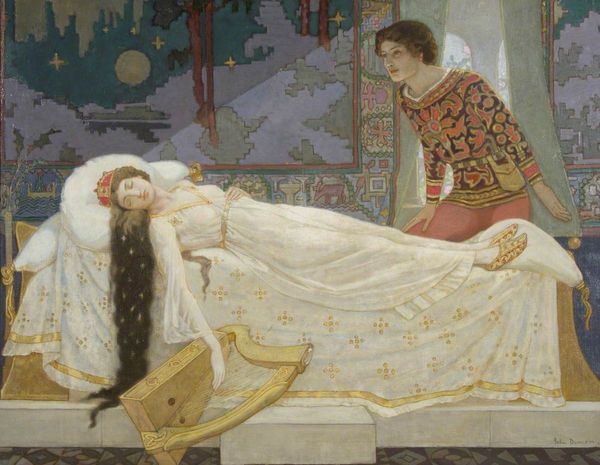
Dimensions: support: 324 x 445 mm frame: 620 x 745 x 115 mm
Copyright: CC-BY-NC-ND 4.0 DEED, Photo: Tate
Editor: William Bell Scott’s "The Eve of the Deluge" presents a fascinating scene. The figures exude a strange mix of revelry and impending doom. How do you interpret this work? Curator: The painting pulses with an unsettling dissonance. The figures, adorned with potent symbols of wealth and power, seem oblivious to the cataclysm they face. The harp, the wine, the languid poses – these are all icons of a civilization on the brink. Notice the animals, too – they seem to sense what the humans cannot. Scott masterfully uses symbolism to explore the psychological state of denial. Editor: That's a compelling perspective. The symbols definitely add a layer of complexity. Curator: Indeed. Scott compels us to consider how societies, even in their most vibrant moments, can be blind to their own fragility. It reflects a potent cultural memory, doesn't it?
Comments
tate 10 months ago
⋮
http://www.tate.org.uk/art/artworks/scott-the-eve-of-the-deluge-n01322
Join the conversation
Join millions of artists and users on Artera today and experience the ultimate creative platform.
tate 10 months ago
⋮
William Bell Scott was the son of a Scottish engraver. He came to London in the 1830s where he practised as an engraver and also exhibited pictures. He had close contact with the Pre-Raphaelites and their circle, chiefly through his friendship with Dante Gabriel Rossetti. In this picture he contrasts the debauched eastern prince and his court with Noah and his family who, only too aware of the significance of the ominous cloud in the sky, are entering the Ark. Gallery label, August 2004
